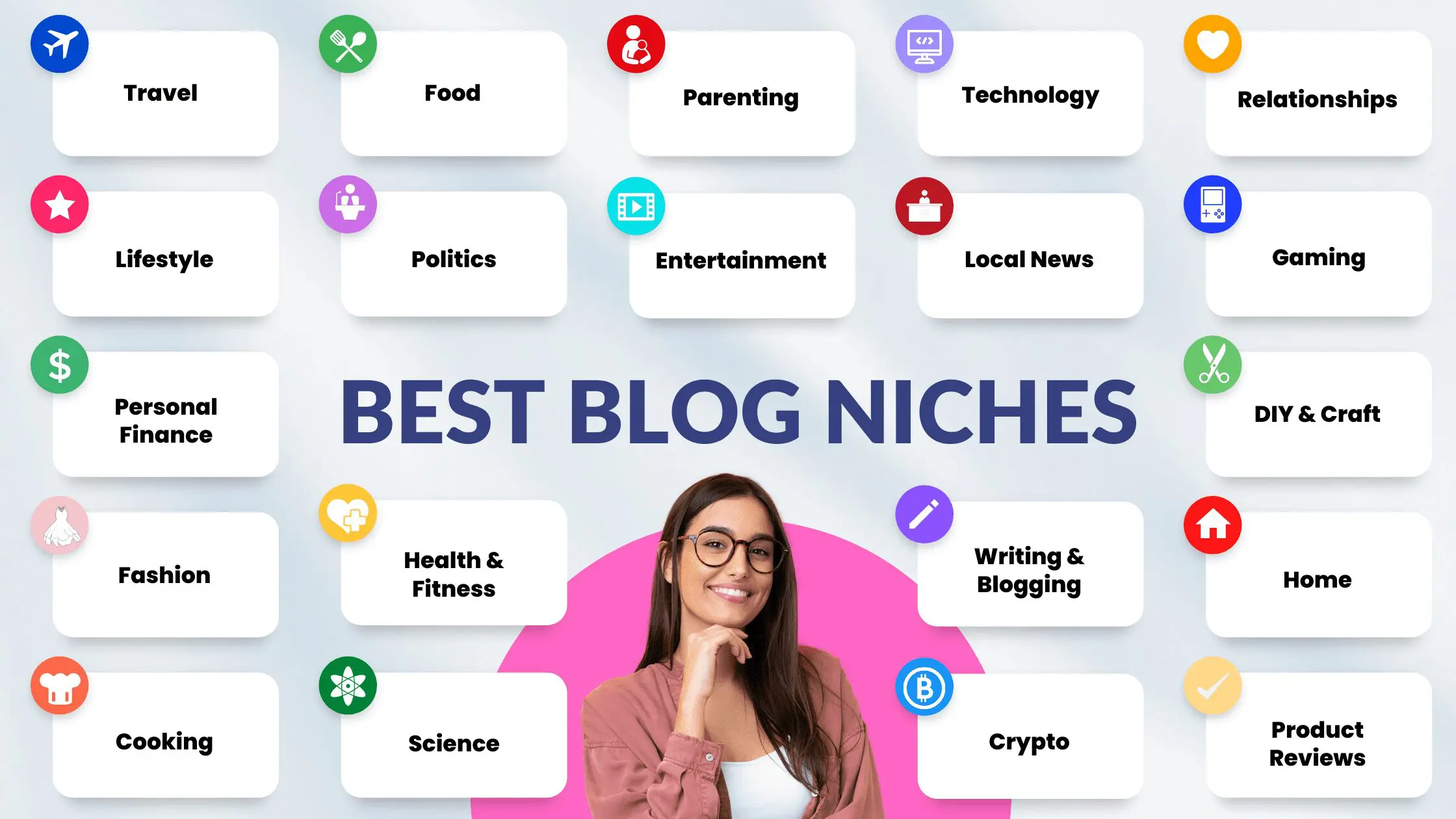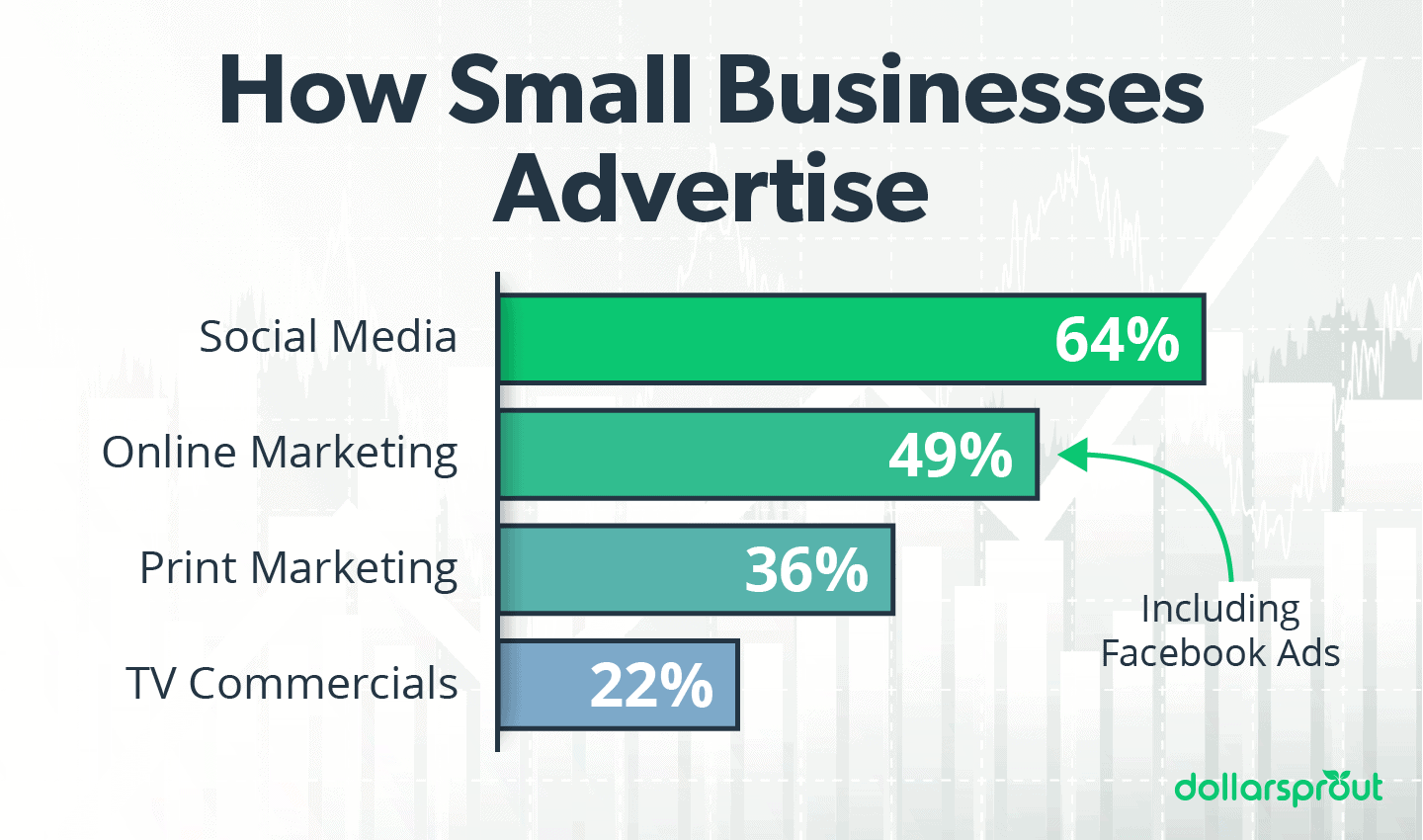Finding the perfect niche for your blog can be challenging. Low competition niches offer great opportunities.
You want a niche that stands out but isn’t overcrowded. Starting a blog in a niche with low competition can be highly rewarding. It allows you to carve out a unique space and attract a dedicated audience. Many bloggers struggle to find such niches, often diving into saturated markets.
But there are less crowded areas ripe for exploration. These niches not only make it easier to rank in search engines but also help you build a loyal following faster. Whether you’re a beginner or an experienced blogger, choosing the right niche can make all the difference. In this post, we will explore some of the best niches for blogging with low competition, giving you a head start in your blogging journey.

Credit: bloggingguide.com
Identifying Profitable Niches
Finding a profitable niche can make your blog successful. It helps you stand out in a crowded market. A niche with low competition can increase your chances of success. But how do you find such niches? By using effective market research techniques and analyzing competition levels.
Market Research Techniques
Start with keyword research. Use tools like Google Keyword Planner. Look for keywords with high search volume. Yet, low competition is key. This combination indicates potential success. Explore forums and social media groups. See what topics people discuss frequently. Pay attention to trending subjects. They can reveal emerging niches.
Another technique is audience analysis. Understand the needs of your target audience. What problems do they face? Can your blog offer solutions? A niche that solves problems will attract readers. Surveys and polls can gather insights. Direct feedback is invaluable for niche selection.
Analyzing Competition Levels
Study your competitors carefully. Identify who they are. Check their content, engagement, and audience size. This helps gauge competition levels. Use tools like SEMrush or Ahrefs. Analyze their backlink profiles. Also, examine their domain authority. High authority means tough competition.
Read their content thoroughly. Look for gaps or weaknesses. Can you provide better information? Or a different perspective? Filling gaps can give you an edge. Consider their monetization strategies too. Successful strategies might work for you.
Exploring Unique Blogging Niches
Exploring unique blogging niches can lead to great opportunities. Many popular niches are saturated. Finding a niche with low competition is key. It means less struggle for visibility. Unique niches offer fresh content ideas. They attract specific audiences. This makes content more engaging and relevant.
Underrated Industry Topics
Underrated topics often hold hidden potential. Think about niche industries. For example, sustainable fashion for teens. It’s not widely covered yet. This topic combines environment and style. Another example is smart home gardening. It’s growing in interest. Yet, many ignore it.
Readers search for these niche ideas. They seek detailed information. You can build authority in these areas. Offering unique insights draws attention. It also builds trust with your audience.
Emerging Trends In Blogging
Blogging trends are always changing. Staying updated is crucial. Micro-niches are gaining popularity. They focus on specific interests. For example, vintage video game reviews. Or plant-based diets for athletes. These trends attract dedicated followers.
Interactive content is another trend. It keeps readers engaged. Quizzes and polls are examples. They encourage participation. Also, personalized content is on the rise. Tailoring content to reader preferences boosts engagement. Exploring these trends can set your blog apart.
Benefits Of Low Competition Niches
Discovering niches with low competition can boost your blog’s visibility. These niches often attract targeted audiences, enhancing engagement. They offer opportunities for unique content creation, setting your blog apart from others.
Finding the right niche for your blog can be tricky. But choosing a low competition niche can offer some surprising benefits. Let’s look at why these niches can be a great choice for you.Easier Audience Targeting
Low competition niches make it easier to identify and reach your audience. You won’t be lost in the crowd of bloggers. Instead, you’ll be in a smaller pool where your voice can stand out. Think about it. If you’re writing about a highly specific topic, there are fewer people covering it. This means your content has a better chance of being seen by those interested in that topic. This can lead to higher engagement. Readers appreciate detailed and focused content. They are more likely to become loyal followers.Higher Potential For Growth
Starting in a low competition niche gives you room to grow. You can become an authority in that area faster. This can lead to more opportunities for collaboration and monetization. I remember starting my first blog in a niche with low competition. It grew faster than I expected. I was able to connect with my audience and build a community around my content. The key is consistency. Regularly add valuable content and engage with your readers. This helps build trust and authority. Low competition niches can be your secret weapon. They allow you to focus your efforts and grow your blog more effectively. Are you ready to find your perfect niche?Strategies For Success
Choosing the best niche for blogging can be challenging. Low competition niches offer a unique opportunity to stand out. Strategies for success are crucial. They ensure your blog gains visibility and attracts readers. Focus on quality content and effective SEO practices. These strategies will help you thrive in your chosen niche.
Creating Quality Content
Quality content is the heart of a successful blog. It captures reader interest and keeps them engaged. Research your niche thoroughly. Understand what your audience needs. Address their questions and concerns. Write clear and concise articles. Use simple language. Break complex ideas into smaller parts. This helps readers understand easily. Include visuals like images and infographics. They make your content more appealing. Regularly update your content. This keeps your blog fresh and relevant.
Effective Seo Practices
SEO practices are essential for visibility. They help your blog rank higher in search results. Use relevant keywords in your posts. Choose keywords with low competition. Place them naturally within your content. Optimize your images with alt text. This improves search engine understanding. Create descriptive meta titles and descriptions. They attract clicks from search results. Ensure your website loads quickly. A fast site improves user experience. Build backlinks from reputable sources. They boost your site’s authority.
Case Studies Of Successful Blogs
Finding the right niche for your blog can feel like searching for a needle in a haystack, especially when you’re looking for low competition areas. But what if you could learn from others who have successfully navigated this path? Real-life case studies offer invaluable insights into choosing a niche that not only excites you but also has the potential to thrive with less competition.
Real-life Examples
Consider the blog about sustainable fashion that started with a simple idea: combining eco-consciousness with style. The founder noticed a gap in the market for eco-friendly clothing that didn’t compromise on aesthetics. By focusing on this niche, they captured an audience hungry for ethical yet fashionable choices.
Another example is a blog dedicated to urban gardening. The creator lived in a small apartment with no backyard and decided to share tips on indoor gardening. This unique angle attracted city dwellers who yearned for a touch of nature in their urban lives.
Lessons Learned
Choosing a niche is not just about finding something you enjoy; it’s about identifying a need. Successful bloggers pinpointed a specific problem or interest area that was underserved. They tailored content to fill this gap, attracting loyal readers.
Keep in mind, passion alone isn’t enough. You need to ensure your niche has a potential audience. What do people want to learn or achieve? Answering these questions can guide your content strategy and help you connect with your readers.
Ask yourself: Are there existing communities that you can tap into? Successful niche bloggers often engage with forums or social media groups, offering solutions and advice that resonate with their target audience.
It’s also essential to stay flexible. As you dive deeper into your niche, you might discover new areas worth exploring. Successful bloggers adapt their strategies based on feedback and changing trends, ensuring their content remains relevant and valuable.
Remember, every successful blog started with an idea and a willingness to explore uncharted territories. What’s stopping you from finding your niche and making it thrive?

Credit: alidropship.com
Tools For Niche Discovery
Finding the right niche for your blog can be challenging. Many bloggers face competition. Using the right tools can simplify this process. Tools for niche discovery help identify less competitive areas. They offer insights and data to guide your choices. These tools ensure your blog stands out in a crowded field.
Keyword Research Tools
Keyword research tools identify what people search online. They help discover popular search terms. These tools show search volume and competition level. Google Keyword Planner is a popular choice. It provides valuable data for free. Another tool is SEMrush. It offers keyword difficulty scores. Ahrefs also provides in-depth keyword insights. These tools guide your content strategy.
Competitive Analysis Software
Understanding your competition is crucial. Competitive analysis software offers insights into rival blogs. SpyFu is one such tool. It reveals competitors’ top keywords. Moz offers similar features. It shows domain authority and backlinks. Another option is BuzzSumo. It highlights trending content in your niche. Using these tools helps refine your blog strategy.
Monetization Opportunities
Finding the right niche with low competition can boost your blog’s success. One crucial aspect of a successful blog is its monetization opportunities. With the right niche, you can explore various ways to earn. Let’s dive into some effective methods.
Affiliate Marketing Options
Affiliate marketing is a popular choice for monetizing blogs. You can promote products related to your niche. When readers buy through your link, you earn a commission. This method works best in niches with specific product needs. For example, a tech blog can recommend gadgets and earn from sales. Choose affiliate programs that align well with your content. This ensures credibility and trust with your audience.
Sponsored Content Possibilities
Sponsored content offers another revenue stream for bloggers. Brands pay to feature their products on your blog. This is ideal for niches with passionate audiences. A beauty blog, for instance, can attract cosmetic brands. Ensure the sponsored content matches your blog’s theme. This keeps your audience engaged and satisfied. Balance is key to maintaining your blog’s authenticity.

Credit: bloggingguide.com
Building A Community
Building a community around your blog can be the key to thriving in a niche with low competition. When you create a space where people feel connected and valued, your blog becomes more than just a source of information—it becomes a hub of interaction. Think about the blogs you love. Isn’t it the sense of belonging that keeps you coming back? By nurturing a community, you give your readers a reason to engage, share, and even contribute, transforming passive visitors into active participants.
Engaging With Your Audience
Engagement starts with understanding your audience. Who are they, and what do they need? Ask questions in your blog posts to invite comments. Respond to these comments promptly and thoughtfully. Share your own experiences to relate to them.
Think about the last time you reached out to your readers. Did you notice how it opened up a dialogue? This interaction not only builds trust but also offers insights into their interests. Use these insights to tailor your content, creating a cycle of engagement and growth. Isn’t it exciting to think that you can shape your blog based on direct feedback?
Utilizing Social Media Platforms
Social media is a powerful tool for community building. Identify platforms where your audience hangs out and create a presence there. Share your blog posts, but also engage with content from others. This reciprocity fosters relationships.
Have you ever posted a question on social media and watched the conversation unfold? These discussions can bring new readers to your blog and deepen your community. Platforms like Facebook groups or Twitter chats are excellent for creating niche-specific discussions. They allow for real-time interaction, making your blog more dynamic and engaging.
In the end, building a community is about creating connections. It’s about being genuine and accessible. You don’t have to do it all at once—start small, experiment, and watch your community grow. What steps will you take today to engage more deeply with your readers?
Frequently Asked Questions
Which Niche Has The Lowest Competition?
The niche with the lowest competition often varies, but local artisan crafts and unique handmade products typically have less competition. Research specific markets to find opportunities.
What Is The Most Profitable Niche For Blogging?
The most profitable blogging niches are personal finance, health and wellness, technology, and digital marketing. These topics attract high-paying advertisers and affiliate programs. Focusing on evergreen content within these niches ensures steady traffic and monetization opportunities. Choose a niche you’re passionate about for long-term success.
Which Niche Is Best For Beginners?
Beginner-friendly niches include personal finance, health and wellness, travel, and food. These topics have broad audiences. They offer plenty of content opportunities and engagement potential. Starting in these niches helps build foundational skills in content creation and audience understanding. Choose a niche you’re passionate about for better results.
What Are The Most Profitable Niches?
The most profitable niches include health and wellness, finance, technology, personal development, and lifestyle. These niches consistently attract large audiences and generate significant revenue.
Conclusion
Choosing a blogging niche with low competition is wise. It offers a unique path. Less competition means more opportunities. You can build your audience steadily. Focus on quality content. Engage your readers with valuable insights. Research and understand your niche deeply.
This helps in creating authentic and relatable posts. Stay consistent with your blogging efforts. Patience is key to success. Over time, your blog will grow. Readers will trust your expertise. So, start your journey today. Explore niches that excite you.
Success awaits those who persist. Happy blogging!






